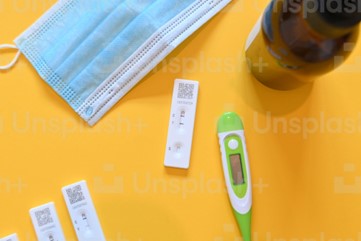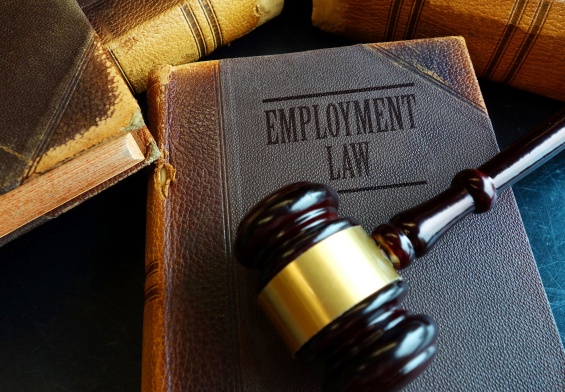Originally posted on: https://www.employmentlit.com/2023/02/23/if-you-need-to-self-quarantine-due-to-covid-you-have-employment-protections-under-the-law/
By: Francine Foner, Esq. and Ty Hyderally, Esq.
Does an employee who is terminated for quarantining due to potential exposure to Covid-19, pursuant to CDC guidelines and his doctor’s recommendation, have a claim for unlawful retaliation under the New Jersey Conscientious Employee Protection Act (“CEPA”)? New Jersey Superior Court Judge Christopher D. Rafano, sitting in Middlesex County, recently held in an unpublished decision, that such facts, if true, are sufficient to support a CEPA claim. John Hollibaugh v. Border Café of Woodbridge, Inc., Jose Tejas, Inc., et. at., Docket MID-L-004680-22.
According the Complaint filed by the Plaintiff, John Hollibaugh, on or about August 4, 2021, Hollibaugh was offered the General Manager position at the Border Café in Woodbridge, New Jersey. Due to his potential exposure to Covid 19 in the workplace, Hollibaugh was instructed to remove himself from his scheduled shifts on August 26, 27, 28, and 30, 2021, and return to work only after he had received a negative Covid-19 test. Hollibaugh tested negative and returned to work on his next scheduled workday of September 2, 2021. The company gave Hollibaugh paid sick leave for those days, in accordance with the Families First Coronavirus Response Act (“FFCRA”).
On or about the morning of September 13, 2021, Hollibaugh was unable to come to work because he was experiencing fever, body aches, headaches, nausea, sore throat and dizziness, after potential exposure to Covid-19. Hollibaugh was provided the option of docking his pay for that day or making up the time. Hollibaugh opted to have his pay docked. On September 22, 2021, Hollibaugh experienced a fever in reaction to his second dose of the Covid-19 vaccine and was ordered to stay out of work until he was fever free. The following day Hollibaugh had a normal temperature and returned to work. When Hollibaugh inquired of his supervisor when he would make up the day that he was out sick, or if his pay would be docked, his supervisor told Hollibaugh “not to worry about making up his sick day right now.” On September 29, 2021, Hollibaugh was terminated, without any warning and only three days after he finished his training.
Hollibaugh alleged that the only reason provided to him for the termination at that time he was terminated was that he “should have made more of an impact on the business.” When Hollibaugh asked for more clarity on the reason for his termination, he was told that he was “not a good fit for the Company.” When Hollibaugh asked for further explanation, he was told that he “missed five days of work and should have made an effort to make up those days on his days off.”
Hollibaugh filed a Complaint in the New Jersey Superior Court, Middlesex County, against the company and supervisors Keith Santangelo, Director of Operations and Elwyn Murray, Chief Executive Officer. Hollibaugh alleged that his termination was in retaliation for his engaging in protected activity when he objected to and refused to comply with the company’s direction that he return to work prior to the completion of his quarantine after symptoms subsided, which he reasonably believed was in violation of CDC guidelines and laws respecting leaves relating to COVID-19. The Defendants moved to dismiss Hollibaugh’s complaint, asserting that the facts, even if true, did not show that Hollibaugh reasonably believed the employer’s conduct violated a law, a regulation or a clear mandate of public policy; that Hollibaugh had performed a “whistle-blowing activity” as defined in CEPA; or that the whistle-blowing activity caused Hollibaugh’s termination.
Judge Rafano disagreed, finding that the facts alleged by Hollibaugh, if true, were sufficient to allege a violation of CEPA, and therefore denied the Defendants’ motion to dismiss. As the Court opined:
Here, the Court finds that Plaintiff reasonably believed the Defendants’ conduct violated a law, a regulation or a clear mandate of public policy based upon all the laws, executive orders, mandatory guidelines, and global, federal and state public policy mandates that dealt with COVID-19 and the pandemic. For example, Plaintiff reasonably believed that he was required to quarantine until his symptoms subsided because of potential exposure to the COVID-19 virus pursuant to CDC guidelines and his health care provider’s medical recommendation. Moreover, Plaintiff reasonably believed that Defendants’ conduct requiring that he return to work prior to the completion of his quarantine after symptoms subsided, constitutes unlawful conduct in violation of laws, rules and/or regulations and/or is fraudulent and/or constitutes improper quality of patient care and/or is incompatible with a clear mandate of public policy. Further, Plaintiff reasonably believed that he may have contracted COVID-19, that he may be contagious, that he had a legal and ethical obligation to quarantine, and that reporting to work would be in violation of law, rules, regulations, would constitute improper customer service and/or be incompatible with a clear mandate of public policy.
Additionally, the Court is satisfied that Plaintiff has pled sufficient facts establishing that he engaged in a whistleblowing activity as defined by CEPA and that Defendants terminated his employment in retaliation for that protected activity. Plaintiff disclosed to his supervisors that he was symptomatic and reasonably believed he had or could have COVID-19 and thus, was unable under the law to report to work. However, when he was able to return to work consistent with the law, only then did Defendants tell him that he was terminated because he followed the law, public policy and of course, common sense, by taking the medical leave. Further, Plaintiff alleges that he objected to and refused to comply with the Company’s requirement that he be at work rather than quarantine. The Court finds that Plaintiff pleaded more than enough competent evidence to survive a motion dismiss under New Jersey’s liberal standard. As our Supreme Court has instructed, a reviewing court must “search[] the complaint in depth and with liberality to ascertain whether the fundament of a cause of action may be gleaned even from an obscure statement of claim. (citing Printing Mart-Morristown v. Sharp Elecs. Corp., 116 N.J. 739, 746 (1989)).
The Court further found that the Complaint contained sufficient facts to support a CEPA claim against the individual defendants, based upon their roles in the company and authority to terminate Hollibaugh’s employment, subject to additional discovery being conducted.
This opinion represents a victory for New Jersey employees. While this decision is unpublished and not binding upon other New Jersey Superior Courts, it is nonetheless persuasive authority for finding a violation of CEPA where an employee suffers an adverse action in retaliation for quarantining due to potential Covid-19 exposure, in accordance with CDC guidelines and a health provider’s recommendation.
En nuestra firma hablamos español. This blog is for informational purposes only. It does not constitute legal advice, and may not reasonably be relied upon as such. If you face a legal issue, you should consult a qualified attorney for independent legal advice with regard to your particular set of facts. This blog may constitute attorney advertising. This blog is not intended to communicate with anyone in a state or other jurisdiction where such a blog may fail to comply with all laws and ethical rules of that state of jurisdiction.




